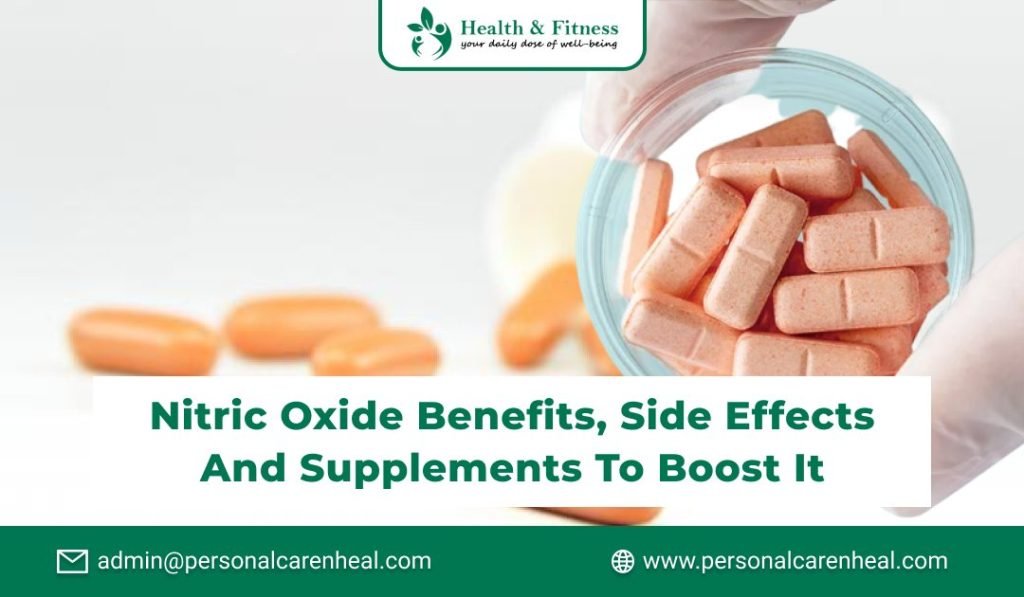Nitric oxide is a compound generated by your body. While taking nitric oxide supplements to boost it is fairly common. Basically, supplements don’t contain nitric oxide, but they are made of ingredients that can boost the production of nitric oxide in your body. If you want to boost the generation of this compound using supplements or already taking supplements, here is what you need to know more about it.
What is Nitric Oxide?
Nitric oxide is a molecule made naturally by your body, and it is important for various aspects of your health. The most important function of this molecule is vasodilation, which means it eases the inner muscles of the blood vessels and as a result, it helps them to widen and increase circulation. For overall health, the production of nitric oxide is important because it allows nutrients, oxygen, and blood to travel to every part of your body efficiently.
Four Drinks that will Directly Boost Nitric Oxide
There are some drinks that can boost nitric oxide production. They can help you with rehydration and offer you numerous health benefits.
Beetroot Juice
According to research, beetroot juice can help boost nitric oxide. Beetroots are enriched with dietary nitrates that your body uses to convert to nitric oxide. Nitric oxide is present in all beetroot supplements that can help boost blood flow.
Citrus Juice
You can consume citrus fruits, like limes, oranges, grapefruit, and lemons which are a key source of vitamin C. This vitamin can boost the production of nitric oxide by increasing its absorption and amplifying its bioavailability. According to research, citrus fruits can be the best source of nitrate oxide foods. They can lower blood pressure levels, reduce the risk of heart problems, and boost brain function.
Green Juice
Various leafy greens, such as cabbage, kale, spinach, and arugula can be used to make a strong nitric oxide drink. These leafy greens not only can increase nitric oxide, but they can boost your fitness levels and blood vessels.
Foods High in Nitric Oxide
Here are some foods that you can incorporate into your diet to boost nitrate oxide:
Beets
Garlic
Meat
Dark chocolate
Leafy greens
Citrus fruit
Pomegranate
Nuts and seeds
Watermelon
Red wine
Nitric Oxide Benefits
You can have various benefits of nitric oxides, such as:
Reduces muscle soreness
Citrulline malate is a form of L-citrulline that not only boosts nitric oxide production but also reduces muscle soreness. Muscle soreness is an uncomfortable condition that occurs after performing strenuous exercise. You may experience this soreness 24-72 hours after strenuous exercise. People who consumed citrulline malate reported 40% less soreness in muscles 24-72 hours after exercise.
Lowers blood pressure
Nitric oxide is helpful in vasodilation that expands blood vessels. It reduces blood pressure and enhances blood circulation. With the increasing level of nitric oxide in your body, it helps eases blood cells, boosts blood flow, and lowers your blood pressure.
Good for heart health
One of the biggest benefits of nitric oxide is that it can improve heart health. Nitric oxide is important for relaxing blood vessels. A good level of nitric oxide can help improve the cardiovascular system, lower blood pressure, and reduce the risk of heart disease.
Manage type 2 diabetes
Nitric oxide is helpful in combating type 2 diabetes. It is believed that nitric oxide helps in preventing and managing type 2 diabetes. According to studies, nitric oxide increases insulin sensitivity and enhances blood sugar control.
Reduce inflammation
Under normal conditions, nitric oxide acts as an anti-inflammatory. A good level of nitric oxide can help in reducing the inflammation that can affect the body negatively.
What are Nitric Oxide Side Effects?
For most people, consuming nitric oxide supplements doesn’t cause side effects. However, when side effects occur, they are mild and may include:
Headache
Diarrhea
Heartburn, bloating, or stomach pain
Nausea
Heart palpitations
However, some people should avoid taking nitric oxide supplements because they may lead to serious side effects. These include people with:
Cirrhosis
People who suffer from cirrhosis shouldn’t take nitric oxide supplements as they could worsen the functioning of the liver.
Guanidinoacetate methyltransferase deficiency
People with this condition lack an enzyme that converts arginine into creatine, which is completely a waste product. Therefore, people with this deficiency must avoid the intake of nitric oxide supplements.
Low blood pressure
If you already suffer from low blood pressure, you shouldn’t consume nitric oxide supplements because of the risk that may lead to lower blood pressure further.
Low Nitric Oxide Symptoms
Nitric oxide deficiency is common, especially as you age. The reason for this can be due to your body’s inability to produce nitric oxide when you are in advanced age. A deficiency of nitric oxide can cause the following conditions:
Depression
Poor vision
Fatigue
Hypertension
Memory loss
Conclusion
Now, you know what does nitric oxide do to your body, what side effects you may experience, what drinks and foods can boost nitric oxide, and what will happen if you have a deficiency of nitric oxide. Moreover, you can get such informative blogs by subscribing to Personal Care N Heal.
Check-out other Blogs



